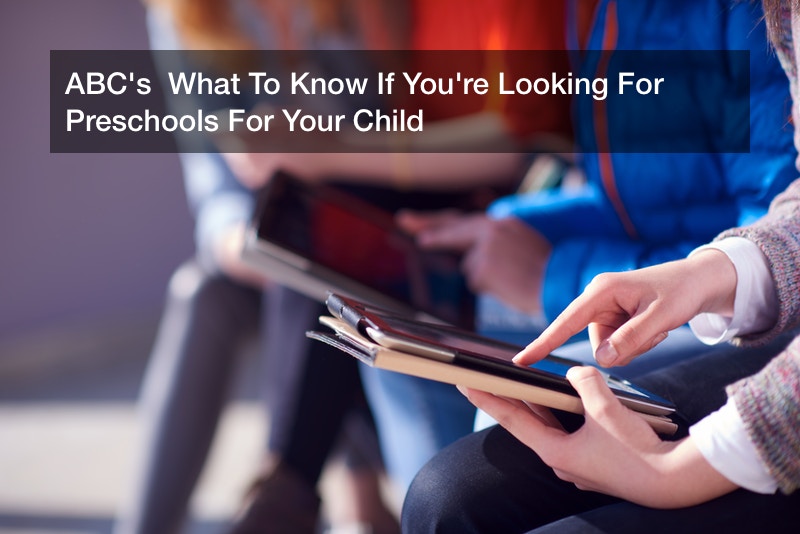
In the United States, and around the world, getting an education is imperative. When you have an education you learn all the information you need to know to survive in life. Additionally, an education opens up your world to many possibilities. Typically, in the United States, we begin our education at a very young age. To be more specific, many American children start their education at three to four years old. This type of education is called preschool. If you’re a parent or a guardian who is looking for a preschool for your little one, here’s what you need to know.
Finding A Good Preschool
Choosing a preschool for your child can be a very overwhelming, daunting task. You want to find the right, ideal learning facility for your child. One where he or she can be comfortable, make friends, work on communication skills, and expand their knowledge. Additionally, there are many factors to consider when trying to find a school. Some of these factors include location, cost, learning philosophy, teacher qualifications, and schedules. However, if you begin your research of schools early, and create questions to ask teachers and the head of the school- you’ll create an easier time for yourself, your spouse, and your child.
There are specific steps you can take to find a good preschool. The first step is starting early. As previously mentioned, starting your search early is highly beneficial. It is important to note that you should start searching for a preschool for your child 9 to 12 months before you expect them to start. Extra time ensures that you can make the right selection and that there will be an opening at the school by the time your child is ready to start. This also helps if you’ll be placed on a wait list, or if you live in an area where preschools are very competitive (New York City and Los Angeles).
The second step you should follow is consider practicalities. Sometimes, in order for the preschool to be ideal for yourself and your child it needs to be affordable and convenient. Where convenience is concerned, think location. Some parents want a location that is close to their home, or workplace. Others do not mind driving their children to preschools that are somewhat farther away. Additionally, make sure the schedule works for you! It’s important for you to know if you can pick up your child and drop off your child. The last practicality is affordability. You need to make sure you can afford it, and it’s a reasonable price. To add to this, Costs for preschools vary dramatically depending on where you live, what type of program you are looking at, and whether your child will attend full-time or part-time.
Types Of Preschools
There are two types of preschools you can choose for your child. We will focus on the differences.
Private Preschools: Private preschools offer smaller classes. This can be beneficial for your child, because smaller classes can lead to more one-on-one attention. Your child’s teacher can truly focus on your child at an individual level. The teacher will know your child’s needs, progress, struggles, and accomplishments. Additionally, there is an open dialogue or communication between parents, teachers, and administration. This causes parents to have an ample amount of involvement in their child’s school life. There are frequent parent-teacher meetings, and this paves the way for parents to become an integral part of their child’s education. Lastly, it also helps strengthen parent-child relationships.
The educational philosophy in private schools varies. You can choose the student-directed learning method found in Montessori schools or art based. However, your child will thrive in a supportive environment, build independence, and gain unique skills that fit his/her learning style.
Public Preschools: Public preschools have your child focus on English, math, social studies, and science more than private schools. This is important because these subjects are the core subjects they’ll need for the remainder of their education. Next, public schools can sponsor more activities. Lastly, public schools are more diverse, so your child will be introduced to children from different backgrounds.
